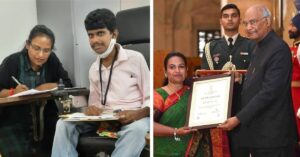How Can 90,000 Kids Keep Clean and Study Well? This NGO Makes It Happen Every Day
It is hard enough to ensure the kids in our own homes learn the right lessons. When comes to tens of thousands across the nation, you need to have some truly unique ideas.
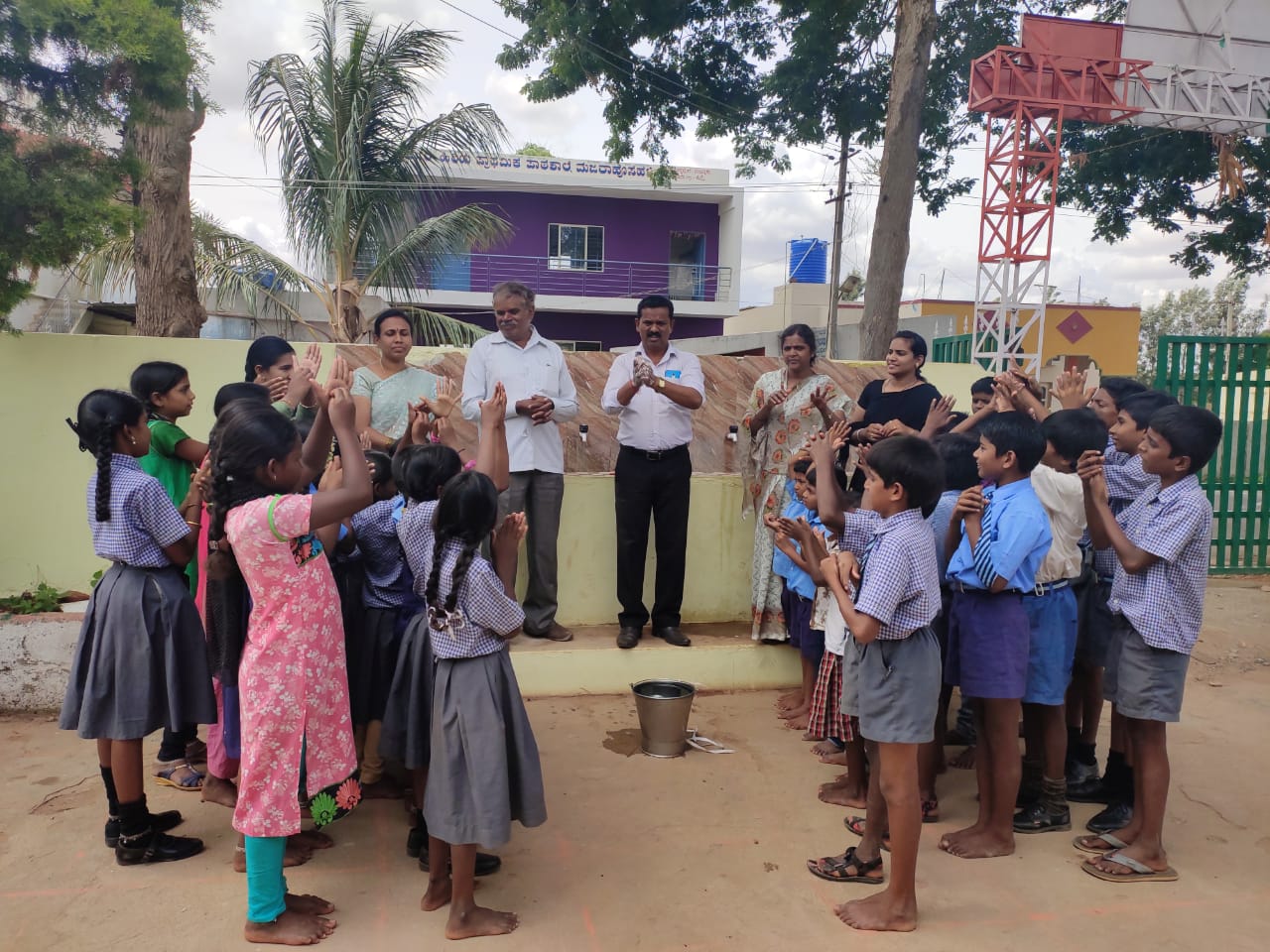
In 2017, India’s Neonatal Mortality Rate stood at a shocking 2.8 per cent—28 out of every 1000 children die before they are one month old.
According to UNICEF, inadequate WASH (Water, Sanitation, and Hygiene) services contribute significantly to this high neonatal mortality rate.
Fixing this is must go beyond simple messages. When a government school girl reads through her value education syllabus, the colourful picture of a young girl washing her hands in a spotless basin might seem like something out of fantasy.
Join The Better India’s “BETTER TOGETHER” initiative to help migrant labourers, daily wage earners, frontline workers, and all those who need our support in this fight against COVID-19. Unable to view the above button? Click here
The chances are high that her home, like approximately 24 crore households in India, still does not have access to basic sanitation facilities that perhaps you and I take for granted – like a toilet or even a basin.
Time and again, valuable research has shown that there’s a direct link between sanitisation and a reduced risk of contagious diseases.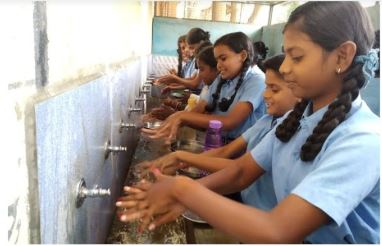
With this vision, Sikshana Foundation, a Bengaluru based not-for-profit organisation, started a WASH programme in over 3000 schools in Karnataka, Maharashtra, and Telangana.
Sudeepta Banerjee, the Director of Partnerships at the NGO, tells The Better India (TBI), “Through the programme, we target government schools specifically because most of the students here come from socio-economically backward backgrounds.
In this age of the COVID-19 pandemic, such disadvantaged communities are more vulnerable to infections. But we started the WASH initiative in 2019. Even before Coronavirus, the children were at high risk of contracting diseases like malaria, due to poor hygiene practices.”
Washing hands-off contagious diseases: Bengaluru NGO’s clean way forward:
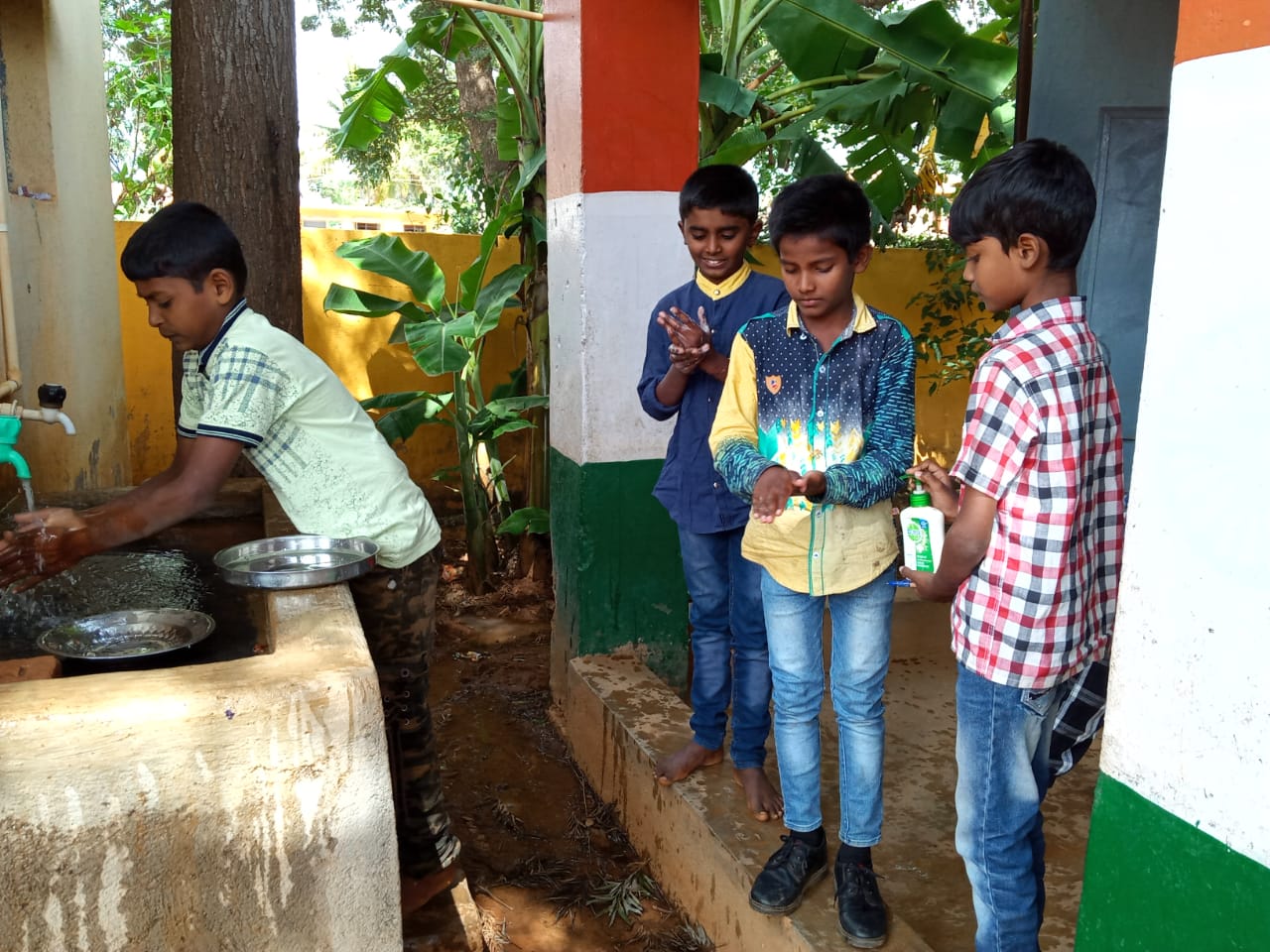
Healthy Newborn Network, an online community dedicated to addressing knowledge about newborn health, dedicated an article to the state of newborns in India. The community, active in over 70 countries, reported, “In contrast to children born in families with better financial resources, poorer children are more at risk for diseases… Creating conditions for better hygiene and reduced exposure to contamination makes children less susceptible to diseases and infections that may lead to death.”
The Sikshana Foundation has taken upon itself to create such conditions in thousands of schools in India. And their approach is not just about creating awareness but also taking up practical projects that can help children.
Priyanka Motipawar, a class teacher at the Zilla Parishad school, Yavatmal, tells TBI, “Kids tend to wash their hands only with water even after playing outdoors. Through Shikshana, we organised a skit to teach the children various methods and correct techniques of washing hands.
After COVID-19 took over, one of my students pointed out that the methods taught by Sikshana representatives were shown on TV as the right technique to wash hands. Clearly, the skit has had a lasting impact on the kids.”
She adds that for older students, the project also involved understanding ways of rainwater harvesting and purifying water using readily available resources like cotton and coal.
Safe water activities undertaken by Sikshana:
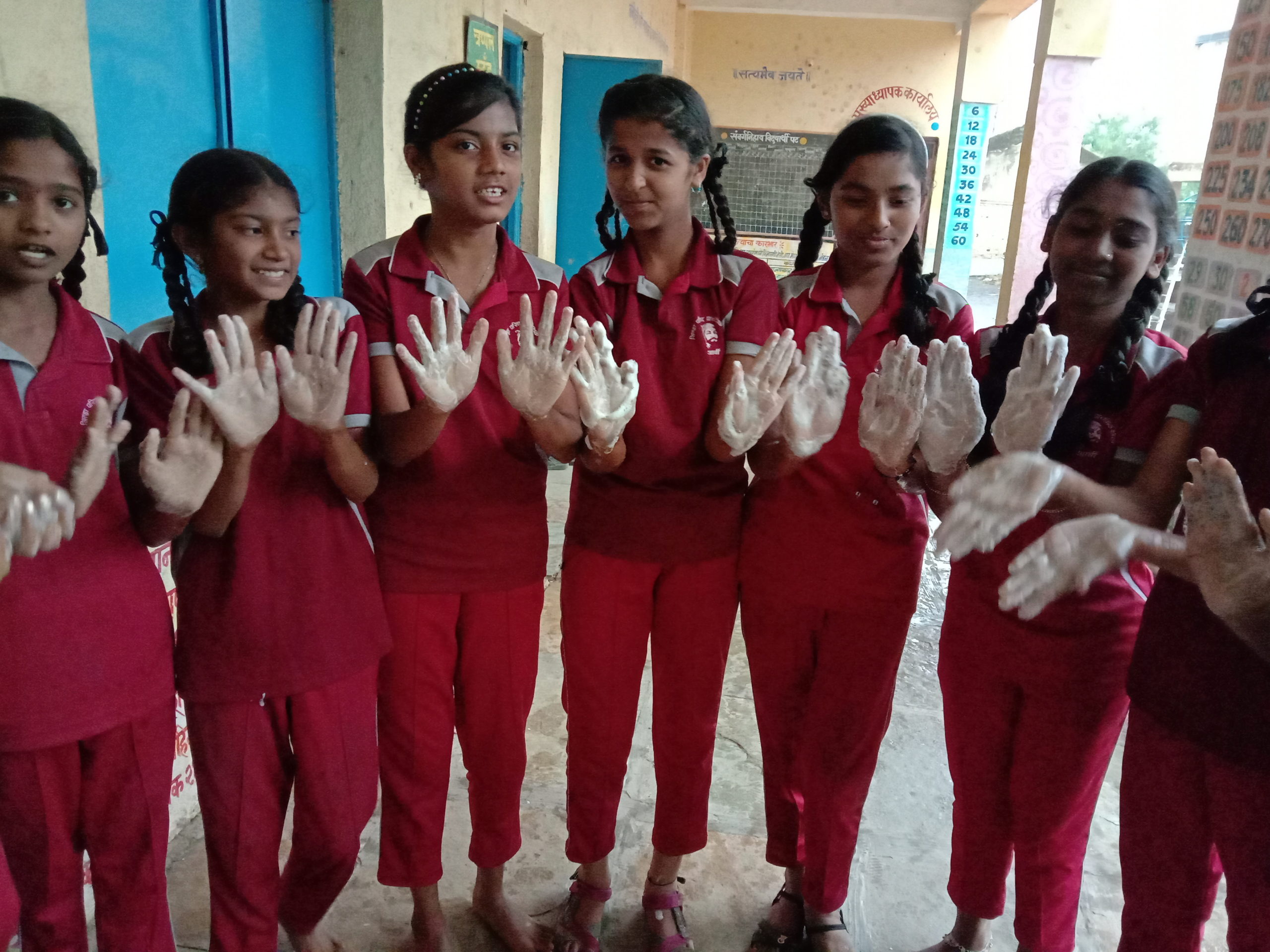
A 2013-14 report published by UNICEF showed that 58 per cent of India’s rural preschools did not have any toilets, and 56 per cent had no water on the premises. Sikshana is addressing this in their capacity by improving plumbing facilities in schools, so students get used to hygienic toilets.
They also install water purifiers in schools in need of them.
S Nirmala, the headmistress at Karnataka Public School, Bengaluru, says, “Sikshana Foundation has helped our school of 200 students by installing a Water Purifier here. We had to purchase purified water every day to provide the same for the students. Now our students can use safe drinking water provided here and can avoid carrying plastic bottles from home.”
Organising WASH awareness camps where doctors, nurses, health department officials, and forest officials had a tete-a-tete with students about how small steps like washing their hands after visiting the toilet or before eating go a long way in protecting their health and their community
“Additionally, the WASH concept is academically driven in students through designing projects under Sikshana’s Project Based Learning program. Students work on projects based on topics like Local Agricultural Needs, Budget Farming, Dehydration, Sanitation, and Water Shortage under the academic wing of WASH initiative,” the team tells TBI.
Sudeepta shares that this project has already seen a ripple effect among communities in Maharashtra, Karnataka, and Telangana.
“The world is talking about washing hands diligently now. Thankfully, our 90,000 kids have already gotten into the habit. They also pass on the message to their families, friends, and neighbours.
The post-COVID-19 world is going to be difficult and even more so for those with limited resources. We are hoping that such small things and initiatives will change the way people think- especially those belonging to vulnerable communities,” Sudeepta shares.
Other initiatives in schools by the Bengaluru NGO:
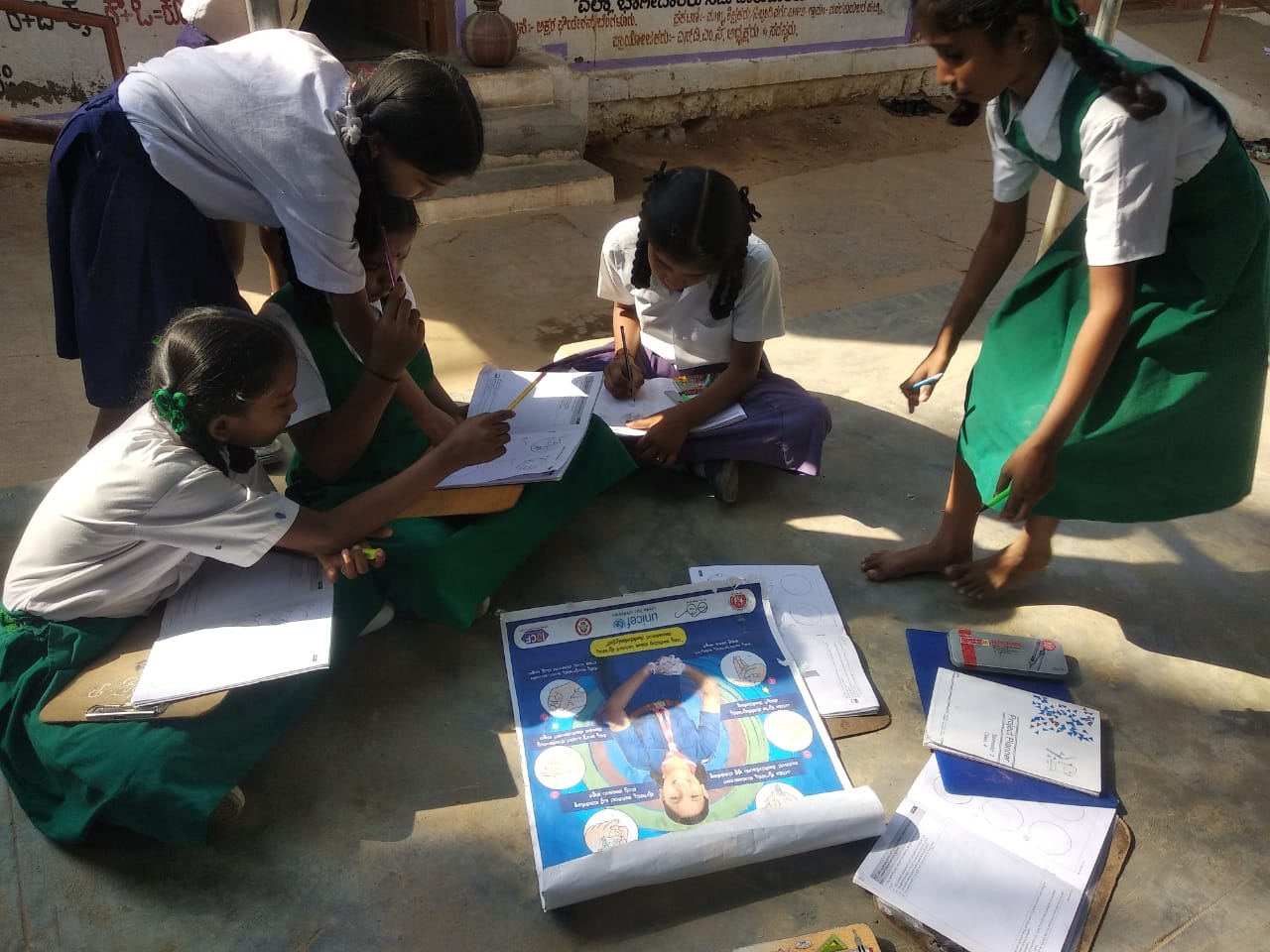
A 2018 survey shows that about 30 per cent of girls drop out of school by the time they reach class 9. The same report shows that only 43 per cent of students are enrolled in higher secondary schools.
One way to keep them in school is to ignite a passion for education among students themselves. Sikshana does so by giving positive reinforcements to the children.
Sudeepta explains, “We launched the Prerana programme in Gujarat, Karnataka, Maharashtra, and Telangana. 48,000 schools are enrolled under this programme, and we have about 2.7 million students under the umbrella. Our primary aim is to make the children want to come to school. The next step is to make them want to study.”
The Prerana programme is fourfold, each with incentives for the students. Sikshana wants to keep the students in schools by creating a healthy competition between them.
- Engagement incentives: Providing minor incentives for students to attend school regularly, do their homework and participate in extracurricular activities. The focus is not so much on winning or getting things right as it is on mere participation.
- Taking ownership of the school premises and of helping peers grow: If a rank scoring student helps those scoring poorly, the administrators incentivise these initiatives by giving them star badges to wear on their uniforms.
- Structured Practice: Not all students are keen on extra work, and when it comes to students from disadvantaged backgrounds, they don’t even have material like workbooks and stationery to keep practising their sums, answers, and diagrams. To ensure that the students are involved in studies even outside of school, Sikshana has partnered with the Karnataka government to aid them with study material.
- Project-Based Learning: This includes practical projects like WASH, implemented across thousands of schools.
Things that we took for granted in school – like clean toilets, unlimited workbooks, proper guidance, etc. seem like luxuries to underprivileged students in government schools.
Sikshana targets these basic needs to create a lasting and essential impact on tens of thousands of students.
After all, these children are the future of India. And to secure the future, we must safeguard their present.
Also Read: Amidst Lockdown, TN Cop Arranges Cab & Donates Blood for Pregnant Lady’s Surgery
(Edited by Vinayak Hegde)
All image courtesy of Sikshana Foundation.
Like this story? Or have something to share? Write to us: [email protected], or connect with us on Facebook and Twitter.
This story made me
- 97
- 121
- 89
- 167
Tell Us More
We bring stories straight from the heart of India, to inspire millions and create a wave of impact. Our positive movement is growing bigger everyday, and we would love for you to join it.
Please contribute whatever you can, every little penny helps our team in bringing you more stories that support dreams and spread hope.







